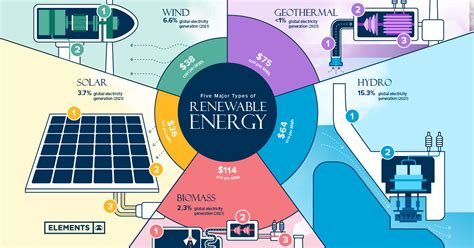The energy industry is undergoing a significant transformation, driven by technological innovations, shifting consumer behaviors, and growing concerns about climate change. As the world transitions towards a more sustainable and efficient energy future, several trends are emerging in the energy tech space. In this article, we will explore five trends in energy tech that are worth watching.
The energy sector is a significant contributor to greenhouse gas emissions, accounting for around 65% of global emissions. To mitigate this impact, the industry is shifting towards cleaner, more sustainable sources of energy. Renewable energy sources like solar and wind power are becoming increasingly cost-competitive with fossil fuels, driving growth in the adoption of renewable energy technologies.

Energy Storage and Grid Resiliency
Energy storage is a critical component of the energy transition, enabling the efficient integration of renewable energy sources into the grid. Advances in battery technology have made energy storage more cost-effective and efficient, driving growth in the adoption of energy storage systems. Additionally, energy storage can help improve grid resiliency, reducing the risk of power outages and grid failures.
Advances in Battery Technology
Advances in battery technology are driving growth in the energy storage market. Lithium-ion batteries are becoming increasingly cost-effective, while new battery technologies like flow batteries and solid-state batteries are emerging. These technologies offer improved performance, safety, and efficiency, making them more attractive to consumers and utilities.

Smart Grids and Energy Efficiency
Smart grids and energy efficiency technologies are becoming increasingly important as the energy industry shifts towards a more sustainable and efficient future. Smart grids use advanced technologies like IoT sensors and data analytics to optimize energy distribution and consumption, reducing energy waste and improving grid efficiency. Energy efficiency technologies like smart thermostats and building management systems can also help reduce energy consumption, lowering costs and environmental impacts.
Building Management Systems
Building management systems (BMS) are a type of energy efficiency technology that can help reduce energy consumption in commercial buildings. BMS use advanced sensors and data analytics to optimize energy usage, reducing energy waste and improving energy efficiency. These systems can also help improve building safety and comfort, making them more attractive to building owners and occupants.

Electric Vehicles and Charging Infrastructure
Electric vehicles (EVs) are becoming increasingly popular, driven by growing concerns about climate change and air pollution. EVs offer several benefits, including reduced greenhouse gas emissions, lower operating costs, and improved performance. However, the adoption of EVs is dependent on the development of charging infrastructure, which is still in its infancy.
Fast Charging Technologies
Fast charging technologies are critical to the adoption of EVs, enabling drivers to charge their vehicles quickly and efficiently. Fast charging technologies like DC Fast Charging and Tesla's Supercharger can charge vehicles to 80% in under 30 minutes, making long-distance driving more practical.

Blockchain and Energy Trading
Blockchain technology is being explored in the energy sector, enabling peer-to-peer energy trading and improved grid security. Blockchain-based energy trading platforms can help reduce energy costs, improve energy efficiency, and promote the adoption of renewable energy sources.
Peer-to-Peer Energy Trading
Peer-to-peer energy trading is a new concept that enables individuals to buy and sell energy directly with each other. Blockchain-based energy trading platforms can facilitate this process, reducing energy costs and improving energy efficiency.

Artificial Intelligence and Energy Management
Artificial intelligence (AI) is being explored in the energy sector, enabling improved energy management and reduced energy waste. AI can help optimize energy consumption, predict energy demand, and improve grid efficiency.
AI-powered Energy Management Systems
AI-powered energy management systems can help optimize energy consumption, reducing energy waste and improving energy efficiency. These systems use advanced algorithms and machine learning to analyze energy usage patterns, providing insights and recommendations for energy optimization.

As the energy industry continues to evolve, it's essential to stay informed about the latest trends and innovations. Whether you're an energy professional, a sustainability enthusiast, or simply someone interested in the future of energy, these five trends in energy tech are worth watching.






What is the future of energy?
+The future of energy is likely to be shaped by technological innovations, shifting consumer behaviors, and growing concerns about climate change. Renewable energy sources, energy storage, and smart grids are likely to play a significant role in the energy transition.
What is the importance of energy storage?
+Energy storage is critical to the adoption of renewable energy sources, enabling the efficient integration of intermittent energy sources into the grid. Energy storage can also help improve grid resiliency and reduce energy waste.
What is the role of blockchain in energy trading?
+Blockchain technology is being explored in the energy sector, enabling peer-to-peer energy trading and improved grid security. Blockchain-based energy trading platforms can help reduce energy costs, improve energy efficiency, and promote the adoption of renewable energy sources.
